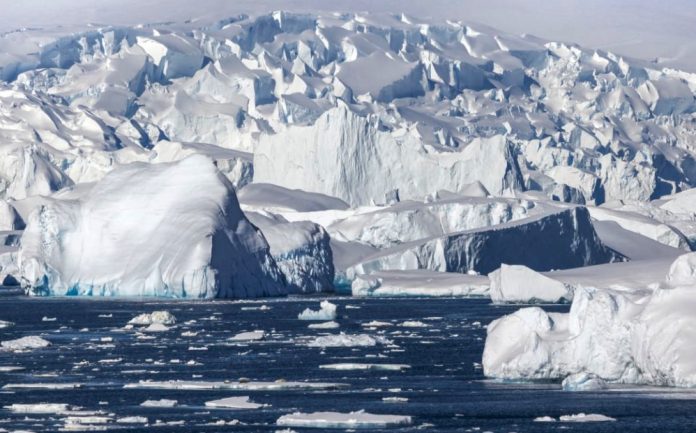ผลวิจัยล่าสุดจากนักวิทยาศาสตร์นานาชาติชี้ว่า แผ่นน้ำแข็งในกรีนแลนด์และแอนตาร์กติกากำลังเผชิญวิกฤตละลายอย่างรวดเร็ว แม้โลกจะสามารถจำกัดภาวะโลกร้อนไว้ที่ 1.5 องศาเซลเซียสได้ก็ตาม การละลายของแผ่นน้ำแข็งอาจทำให้ระดับน้ำทะเลสูงขึ้นหลายฟุต ส่งผลให้ประชาชนหลายร้อยล้านคนที่อาศัยอยู่ตามแนวชายฝั่งต้องอพยพ และสร้างความเสียหายที่เกินขีดจำกัดการปรับตัวของมนุษย์
โดยในงานวิจัยซึ่งตีพิมพ์ในวารสาร Communications Earth and Environment ระบุอีกว่า โลกกำลังอยู่ในเส้นทางภาวะโลกร้อนสูงถึง 2.9 องศาในปี 2100 ซึ่งจะเร่งการละลายของแผ่นน้ำแข็งอย่างมาก แม้ที่ระดับ 1.2 องศาในปัจจุบัน แผ่นน้ำแข็งก็เริ่มล่าถอยอย่างรวดเร็วแล้ว โดยปัจจุบันมีการสูญเสียน้ำแข็งราว 370 พันล้านตันต่อปี ส่งผลให้อัตราการเพิ่มขึ้นของระดับน้ำทะเลในแต่ละปีเพิ่มเป็นสองเท่าภายใน 30 ปี
นักวิทยาศาสตร์เตือนว่า จุดเปลี่ยน (tipping point) ที่อาจนำไปสู่การพังทลายของแผ่นน้ำแข็งอย่างถาวรยังไม่ชัดเจน และมีแนวโน้มว่าระดับอุณหภูมิที่ถือว่าปลอดภัยจริง ๆ อาจต่ำกว่าที่เคยคิดไว้ “แม้จำกัดโลกร้อนไว้ที่ 1.5 องศาจะเป็นความสำเร็จใหญ่ แต่ก็ไม่เพียงพอที่จะหยุดระดับน้ำทะเลจากการเพิ่มขึ้นได้” นักวิจัยกล่าวพร้อมเรียกร้องให้ทั่วโลกเร่งเตรียมการรับมือกับผลกระทบระยะยาวที่จะเกิดขึ้นแน่นอนในอนาคต
A recent study by international scientists reveals that the Greenland and Antarctic ice sheets are facing a rapid and severe melting crisis—even if the world manages to limit global warming to 1.5°C. The melting could cause sea levels to rise by several feet, forcing the relocation of hundreds of millions of people living along coastlines and resulting in damage beyond the limits of human adaptation.
Published in the journal Communications Earth and Environment, the study warns that the world is currently on track for up to 2.9°C of warming by 2100, a scenario that would dramatically accelerate ice sheet melt. Even at the current warming level of 1.2°C, the ice sheets are already retreating, losing around 370 billion tons of ice each year. This has led to the doubling of the annual sea level rise rate over the past 30 years.
Scientists caution that tipping points leading to irreversible ice sheet collapse remain uncertain, and the temperature threshold considered “safe” may be lower than previously thought. “Limiting warming to 1.5°C would be a major achievement,” researchers stated, “but it will not be enough to stop sea level rise.” The study urges global leaders to begin immediate preparation for the long-term impacts that are now considered inevitable.
#climatecrisis #sealevelrise #meltingicesheets #globalWarming #updatenews #TheThailandder
















